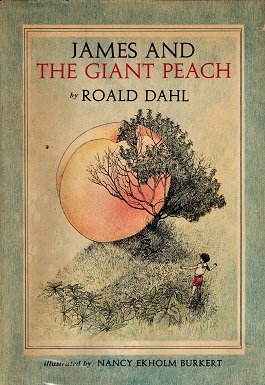Shmuel Yosef Agnon
Explore the timeline of Shmuel Yosef Agnon, an influential Hebrew writer and Nobel Prize laureate in Literature. From his birth in 1888 and early writings, through his significant contributions to modern Hebrew literature, and his recognition by the Nobel Prize in 1966, discover the key moments that shaped his illustrious career and legacy.
Birth of Shmuel Yosef Agnon
Shmuel Yosef Agnon was born on July 17, 1888, in Buczacz, then part of the Austro-Hungarian Empire and now in Ukraine. His birth name was Shmuel Yosef Halevi Czaczkes. Agnon would grow up to become one of the central figures of modern Hebrew literature, known for his unique narrative style that intertwined Jewish themes with modern storytelling.
Agnon's First Story Published
In 1908, at the age of 20, Agnon's first published story, Agunot, appeared in the Hebrew newspaper 'Ha'om' in Palestine. This early work, which revolves around the life of a disillusioned Jewish wife awaiting her partner in Galicia, quickly gained him recognition as a talented writer of Hebrew literature. This debut set the stage for Agnon's literary career, characterized by nuanced exploration of Jewish identity and tradition.
Move Back to Palestine
In December 1924, Shmuel Yosef Agnon moved back to the British Mandate of Palestine after living in Germany for several years. His return marked a significant period in his life, which saw him deeply engaging with Hebrew language and culture, and witnessing the transformative events in the Jewish settlement there. This move influenced many of his subsequent works, as he immersed himself more fully in the development of modern Hebrew literature.
Publication of Hakhnasat Kalah
In 1930, Agnon published one of his significant early novels, "Hakhnasat Kalah" ("The Bridal Canopy"). This novel, set in the early 19th century, follows the travels of Reb Yudel, a devout, impoverished man trying to marry off his three daughters. The novel is both a comical and touching satire and is noted for its vivid depiction of Jewish life in Eastern Europe. It highlighted Agnon's narrative skill and deep understanding of Jewish culture and folklore.
Publication of A Guest for the Night
In 1938, Agnon published one of his seminal works, "A Guest for the Night." Set in a remote Galician town post-World War I, the novel reflects on themes of nostalgia, displacement, and the changes wrought by war. Through its protagonist's visit to his hometown after many years, Agnon examines the shifts in Jewish life and the sense of loss felt by those returning home. This novel remains one of Agnon's most introspective and significant works in exploring Jewish identity.
Publication of Only Yesterday
In 1945, Agnon published "Only Yesterday," a complex work set during the Second Aliyah to Palestine. It realistically portrays Jewish pioneers' lives and delves deep into the conflicting emotions of those attempting to create a new Jewish homeland while grappling with traditional values. The novel is considered one of Agnon's masterpieces, showcasing his depth in addressing the psychological and societal transformations experienced by Jews in the early 20th century.
Awarded the Israel Prize
In 1959, Agnon received the Israel Prize for Literature, one of the nation's most prestigious awards. This recognition was a testament to his crucial role in shaping modern Hebrew literature and his profound influence on Israeli culture. Agnon's works, steeped in Jewish tradition yet innovatively modern, have become a staple in Israeli literature and education, influencing generations of writers and thinkers in Israel and beyond.
Publication of Shira
In 1962, Agnon published "Shira," a poignant exploration of love and desire through the character of Manfred Herbst, a literature professor. The novel, mostly drawing from Agnon's later years, delves deeply into personal and academic conflicts, interweaving existential and moral dilemmas. Although published during Agnon's later life, "Shira" highlights his continued ability to create rich, multifaceted characters and thought-provoking narratives that resonate with readers.
Nobel Prize in Literature
On October 23, 1966, Shmuel Yosef Agnon was awarded the Nobel Prize in Literature, a historic moment as he became the first Israeli writer to receive this accolade. The Nobel Committee recognized Agnon for his profoundly evocative narratives that weave together traditional Jewish life with contemporary themes. This recognition placed Agnon on the global literary stage and affirmed the international value and richness of Hebrew storytelling.
Death of Shmuel Yosef Agnon
Shmuel Yosef Agnon passed away on February 17, 1970, in Jerusalem, Israel. His death marked the end of a towering presence in Hebrew literature. Agnon's literary works continue to inspire and educate, recognized for their deep understanding of Jewish diaspora life and the modern world's challenges. His stories remain a crucial part of Jewish cultural heritage, bringing to life the richness of Jewish tradition and modernity through his masterful use of language.
Frequently asked questions about Shmuel Yosef Agnon
Discover commonly asked questions regarding Shmuel Yosef Agnon. If there are any questions we may have overlooked, please let us know.
What are some significant works written by Shmuel Yosef Agnon?
When did Shmuel Yosef Agnon win the Nobel Prize in Literature?
When did Shmuel Yosef Agnon pass away?
When was Shmuel Yosef Agnon born?
Related timelines
More timelines connected to Shmuel Yosef Agnon







